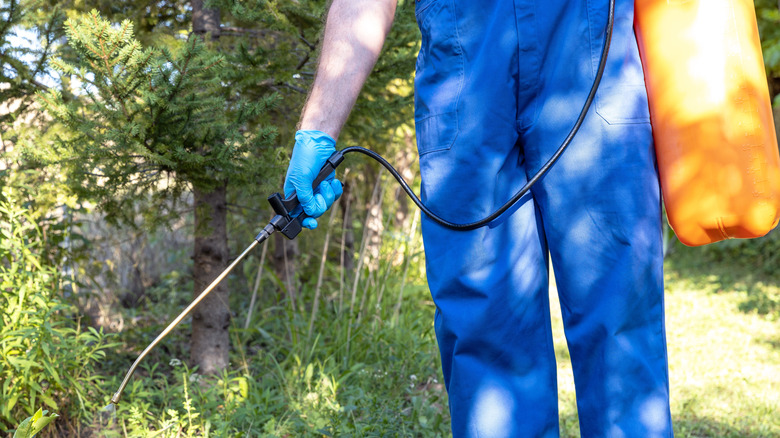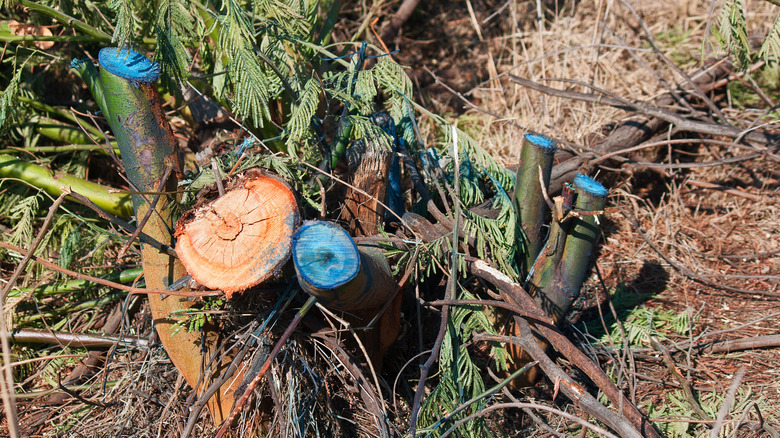The Popular Weed Killer You May Want To Think Twice About Using In Your Yard
There's a popular weed killer that people use to get rid of unwanted broadleaf and woody weeds and to stop tree stumps from regrowing. After all, using chemical control is one way to safely remove a tree stump without calling in the professionals. But you may want to think twice about using this in your yard because it can have a negative effect on the plants you wish to preserve. This product is called Tordon, and while it might be very good at killing the weeds you want to get rid of, it can also kill plants and trees growing nearby and can be detrimental to aquatic life if your garden is near a natural waterway.
Tordon is manufactured by Corteva Agriscience, and its main active ingredients are picloram potassium salt, potassium hydroxide, and alkylphenol alkoxylate. Its Safety Data Sheet states that it's important to wear gloves and protective clothing when applying it to avoid contact with skin. Other precautions include not breathing the vapor and keeping it away from heat and flames.
One of the recommended ways to use this weed killer is to apply it to cut surfaces. In other words, undesirable trees and woody weeds should be cut first before applying the Tordon. Injecting unwanted trees with the herbicide has also proven successful. For other types of actively growing weeds, Tordon can also be broadcast or used as a spot treatment. But there are residual problems with this product that you should be aware of before you decide to use it.
Problems to consider if using Tordon
When you apply Tordon to any weed, the herbicide travels down to the root systems, killing all the roots. This means it will stop the nuisance plant from sending up new sprouts. But the main problem is that the product is likely to end up in the surrounding soil, which can spell disaster for any other plants growing nearby. Even the roots of nearby trees will be affected by the weed killer, causing a decline in tree health and, often, death. It's known that this product stays in the soil for quite some time, so anything else you plant in the same area is going to be affected by the residue of the Tordon in the ground.
The other major issue with Tordon is that it's mobile in soil and can be leached into any surrounding waterways. This can pose concerns for fish and other aquatic animals because of its toxicity. So if you live close to a natural stream, river, or lake, it's wise not to use this product in your yard to avoid waterway contamination. In fact, the Safety Data Sheet states, "If the product contaminates rivers and lakes, or drains, inform respective authorities." A safer alternative might be triclopyr, as long as you use it correctly. This is mostly non-toxic to fish and breaks down much faster in soil than Tordon. Or you might want to consider a more natural control, like Epsom salts, to get rid of pesky tree stumps.

